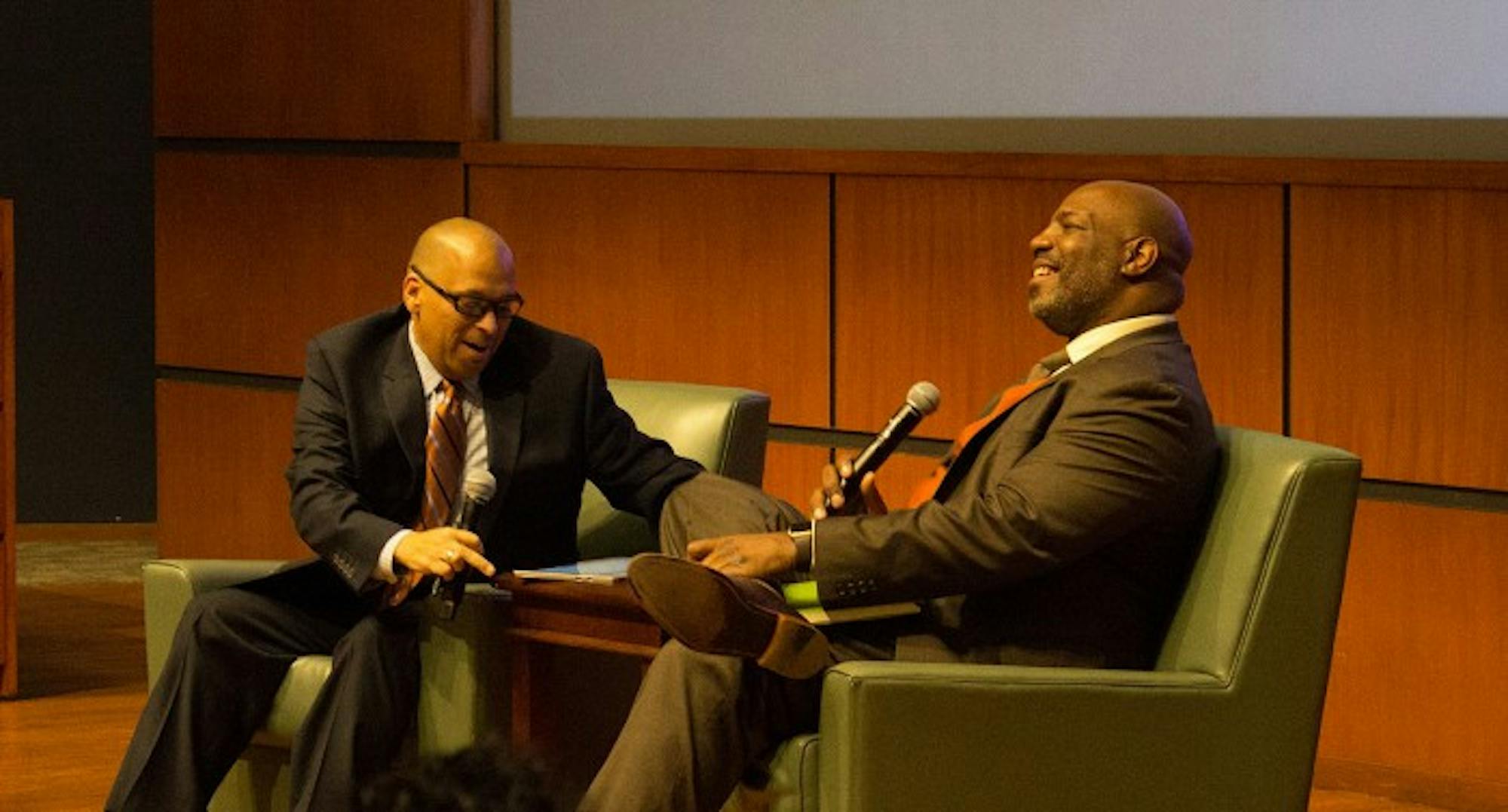Journalist Jelani Cobb explored America's history of racism as well as its present existence Tuesday night. Cobb, a professor in the Columbia University Graduate School of Journalism, has been published in The Washington Post and has written a series of articles centered on race, the police and injustice for The New Yorker.
His lecture, titled “The Half-Life of Freedom: Race and Justice in America Today,” was hosted by the Dean’s Fellows of the College of Arts and Letters.
Cobb said race replays itself constantly as a theme in history.
“It’s not simply an issue,” Cobb said. “We can’t fundamentally understand how the country came into existence or what the country is without looking at this subject. ... This idea of ‘We the People,’ this founding creed, that the ultimate authority is ‘we.’ But the more important question is who is this ‘we’? It’s a question we have never reconciled.”
Cobb said he previously taught at Moscow University, and it was there that one of his colleagues mentioned a particular optimism he thought defined Americans. He said it’s this sense of optimism that is applied to our understanding of the past. However, he said he stands firm on the belief that progress is not permanent, and there’s always the potential of moving backwards.
“Progress doesn’t look like a straight line,” Cobb said. “It looks more like an EKG. We’ve seen these great moments of peaks which have been followed by valleys with the hope that the peaks are higher and the valleys are shallow.”
Cobb said the rise of hateful organizations like the Ku Klux Klan and acts such as lynching was fueled by an underlying objective to eliminate a sense of racial progress and was part of the resistance to racial integration and equality.
Cobb said discrimination was not limited to African Americans and cited examples through history such as the Chinese Exclusion Act. He talked about inequality for African Americans among areas such as health care, life expectancy and unemployment rates.
“We find that race matters in all these kinds of ways and that it continues to replicate the hierarchies that are baked into this country’s history,” Cobb said.
Cobb said it is people's responsibility to move the world in a desired direction. He said 2.9 million people took to the streets to protest after President Donald Trump's inauguration, which demonstrates that movements come about when “abstract principles become concrete concerns.”
“Despair is the ally of the people who you are fighting against,” Cobb said. “The whole point is to break people’s will and to leave people dispirited. But keep in mind the victories people have achieved against really large odds. Optimism is the fundamental building block of anything that comes after.”
According to Cobb, that optimism is tragic because he believes racism will never fully disappear, but that it will turn from a fatal illness to a chronic ailment as people find better ways of addressing it.
Cobb said there is no notion of a “post-racial society.” According to Cobb, there was an anxiety felt among some white groups who felt other racial groups were becoming more advantaged after the election of President Barack Obama in 2008, but that anxiety was a result of racism.
“[If] you are defining your citizenship by your cumulative advantages over this group of people, then yes you will find progress to be threatening,” he said. “There’s no other word for that than racism.”
Cobb said it was particularly the testing times of racism and injustice that acted as an impetus of moving forward with social progress.
“The place where I find optimism is in each moment where we have encountered these values, where we find ourselves moving backward [that] has had a catalyzing effect on people of conscience who have come together and demand that we create a more decent, equitable and more democratic world,” he said. “We have seen that shockingly small number of people summon the will to perform acts of importance far beyond their numbers.”













